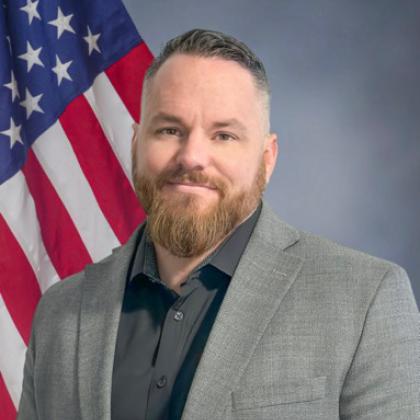The Joint Warfighting Cloud Capability Is Breaking Barriers
Having a direct relationship with cloud providers is advancing cloud offerings for joint warfighters. The Joint Warfighting Cloud Capability (JWCC), which has been open for business for about four months, is forging ahead on its promises, according to the program manager of the platform.
Managed by the Hosting and Compute Center (HaCC) at the Defense Information Systems Agency (DISA), the JWCC is already providing early benefits to stakeholders, according to JWCC Program Manager Ryan McArthur.
Officials structured the JWCC vehicle to be a one enterprise contract and set up direct relationships with the cloud service providers (CSPs)—which is unique. HaCC works with DoD customers to shape their cloud service requirements and interacts directly with the four private sector cloud companies on the contract, instead via a third-party.
“No contract in the department has that direct relationship with the CSPs,” McArthur said. “Having that single point to be able to go to the vendors and be able to [interact with them] when it comes to meeting capabilities, needing to drive cost parity or cybersecurity incidents, those are groundbreaking things for the department at large.”
The setup with the cloud companies is already proving fruitful, McArthur continued. “We're really starting to see how we're able to influence the CSPs,” he stated. “I also think that as we're able to gather the requirements, we are able to ensure that they're meeting our needs and ensure that the department is getting the best-in-class capabilities moving forward for the warfighter. Those are all groundbreaking things.”
And as touted, the JWCC will bring cloud capabilities in at all classifications levels—also a not-seen-before measure. “I think that what is important to know about JWCC is that we broke a lot of barriers,” McArthur noted. “What JWCC is bringing to the Department of Defense that is new is bringing cloud in at all classification levels.”
McArthur, a retired Army warrant officer who helped stand up the JWCC over the last year and a half, does see challenges related to the classified cloud—the offerings are not quite all there yet and cloud providers’ abilities differ. McArthur remains optimistic, however, as the agency is leveraging a unique partnership the DoD created with the intelligence community, or IC, to assist in this area.
“On the unclassified side, there are not a whole lot of challenges,” he said. “A lot of that comes back to who we're partnered with and that we have the FedRAMP processes, those are well established. The classified side is a bit more challenging. Where JWCC broke a paradigm is the partnership that we put in place with the IC. I can tell you with strong confidence that the JWCC will be the only contract that has TS [Top Secret]. When it comes to the intermingling of Title 10 and Title 50 authorities, the joint use agreement that we've put in place with the IC for the JWCC is the first of its kind. It was very hard to kind of put in place.”

Having that single point to be able to go to the vendors and be able to [interact with them] when it comes to meeting capabilities, needing to drive cost parity or cybersecurity incidents, those are groundbreaking things for the department at large.
McArthur sees Amazon and Microsoft—who have been in the government cloud space a lot longer—as initially providing more robust classified cloud services. “What we've noticed on both the Secret and TS fabrics is that there's different players in the game and different authorities that we've run into,” he noted. “Whereas Google and Oracle are both moving further into their cloud journey. Oracle's a little further along than Google is. But we're helping all four of them progress in their journey and working with the IC, with that partnership, to get them there.”
The JWCC already has about a dozen customers signed on for cloud services. The customer’s needs differ, whether it is to transition websites, move away from on-premise servers or transition their on-premise applications. “We also have some organizations that have their applications already in the cloud and are just wanting to transition their contracts,” McArthur shared. “It really truly runs the gambit.”
Learn more about the JWCC, other DISA efforts, U.S. Cyber Command priorities and DoD technology considerations at AFCEA International's TechNet Cyber flagship event, May 2-4 in Baltimore.




Comments